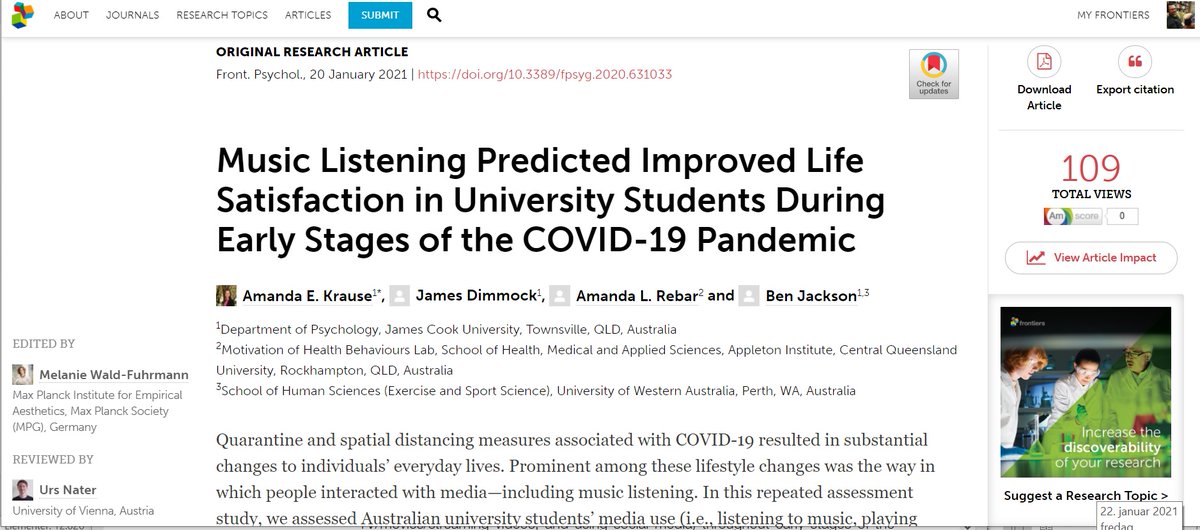4th pub in our #MUSICOVID-themed @FrontPsychol Research Topic ( http://fro.ntiers.in/CovidMusic ) is a very compelling paper titled "Music Listening Predicted Improved Life Satisfaction in University Students During Early Stages of the COVID-19 Pandemic" spearheaded by @StudyListening. 1/7
First of all, here is the link: https://www.frontiersin.org/articles/10.3389/fpsyg.2020.631033/full 2/7
The authors administered a longitudinal survey to 127 uni students from @jcu (and maybe elsewhere in QLD, Australia?) on six occasions during early #lockdown in April-July 2020, asking them about media use and life satisfaction (along with other things not reported here). 3/7
While the first time point was during lockdown and therefore prone to recall bias like many, many other #COVID19 and #MUSICOVID studies, a clear strength of this study is the longitudinal design allowing the authors to track development in media use over time. 4/7
While life satisfaction decreased during #lockdown (no big surprise!), social media use and to some extent watching TV increased. Interestingly, unlike Cabedo-Mas et al. ( https://twitter.com/nielschr_/status/1348917276234428417), quantity of music listening did not seem to change much. 5/7
Main finding of this study: Music listening during #lockdown was positively whereas watching TV/movies/streaming videos was negatively associated with life satisfaction. This is consistent with a recent @medrxivpreprint by Bu et al., for example ( https://www.medrxiv.org/content/10.1101/2020.08.18.20177345v1). 6/7
While causal direction remains unknown, findings suggest music listening may provide especially effective coping during crisis. Very interestingly, authors speculatively ascribe this to music listening being a more active, self-driven activity than binge watching. Thoughts? 7/7

 Read on Twitter
Read on Twitter




